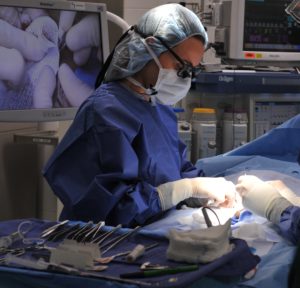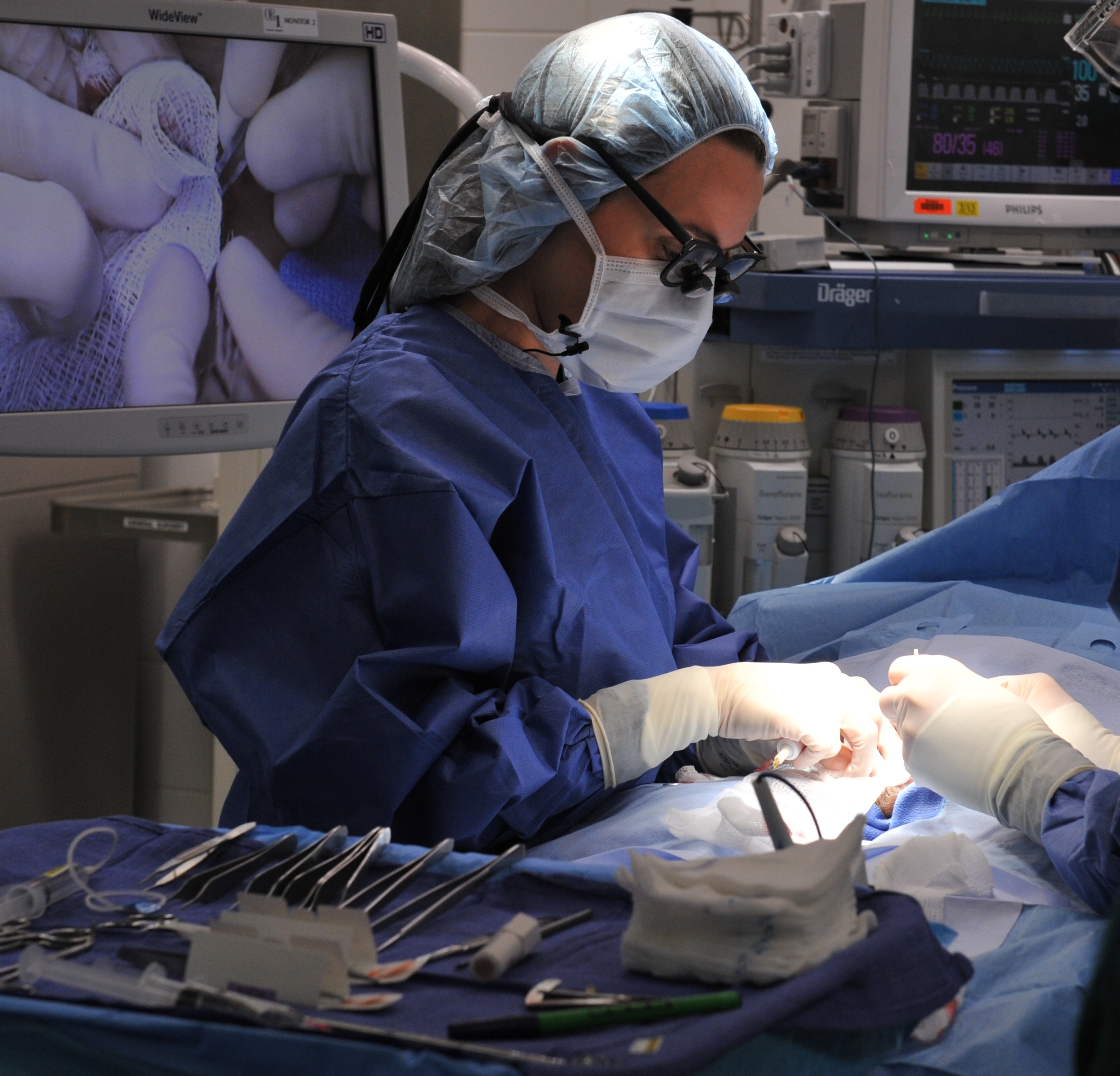
We’d like to introduce you to Nicol, a pediatric urologic surgeon and former Dallas Cowboys cheerleader!
What turned you on to science and when?
I decided in high school that I wanted to help people by becoming a doctor. I didn’t know what kind of doctor, or really very many details about what was involved in becoming a doctor, so I volunteered at my local hospital during high school to learn more, and I found a pre-med guidance counselor in college who helped me prepare for medical school.
Favorite and/or most challenging courses you took to prepare for your degree? Why?
During my first year in medical school, I took gross anatomy, which included lectures during the day, and dissecting our cadaver during lab a few times per week. It was a humbling experience to work with our cadaver – a person who donated his body to science so we could learn what we needed to know about anatomy. It’s information that I use every day as a surgeon.
You’re working as a pediatric urologic surgeon. What got you interested in that?
I love the opportunity to make something “normal” that isn’t quite normal to begin with. Many babies are born with birth defects that don’t improve on their own. For example, the 1st and 2nd most common birth defects that occur in babies include problems with the testicles and the penis. These are conditions that I repair every week. It is very rewarding to make a difference in that baby’s life, with the goal of repairing things so that no one knows I was ever there!

What’s the academic and training path to become a pediatric urologic surgeon?
4 years of college, 4 years of medical school, 6 years of urology residency, and 2 years of pediatric urology fellowship.
What’s your biggest challenge when performing surgery on kids?
The biggest challenge in my job is to do everything possible to get it right the first time. The first surgery is often the best chance to reconstruct things in the most normal fashion possible. My work is much more difficult, but perhaps even more rewarding, when a child has had numerous surgeries that didn’t heal correctly that we are then able to make better. My colleague and I travel all over the world to help repair such patients.
Best part of your day job?
Nearly all of it! I love seeing patients in the office and getting to know some of their families very well over the years. But most of all, I love the plastic surgery reconstructions that help children with urology issues, including surgery on the bladder, kidneys, testicles, and penis.
You cheered for the Dallas Cowboys. What was that experience like, and why did you try out to be a professional cheerleader?
I tried out for the Dallas Cowboys because my younger brothers were so excited about their recent Super Bowl win that they sent me the application! It sounded like a fun way to travel and use my dance skills (I grew up doing ballet), so I filled out the application, and spent my 18th birthday at tryouts. I balanced cheering with a full load of courses in college, which often meant I had to take exams early if I was going to be out of town for an appearance or a USO tour. Fortunately, my college instructors were very understanding, I worked very hard, and I graduated with honors.
Which came first, your interest in science or cheerleading?
I started dance at age 5, so that came first, but decided to become a doctor when I was 16, a few years before I started cheering. I knew when I was cheering that I had to balance schoolwork and cheering in order to get in to medical school. That helped me learn to multitask, which is a valuable skill as a surgeon.
What’s a day on the job like for you?
There are about 350 pediatric urologists in the United States. We help when there are problems with the kidneys, bladder, and girl and boy private parts. One condition that I specialize in is called hypospadias, where the pee hole (called the urethra) is located lower down than it should be, and boys can’t urinate from the tip of their penis. This happens to about 1 in every 200 boys. I repair this using microscope glasses and very small stitches to fix the urethra and make the penis look normal. I also deal with other common problems, such as moving the testicle to the correct position (another very common birth defect), and helping children who have urinary tract infections. I spend about half my time seeing patients in the office, and the other half in the operating room. I also have specialized training to help report the results of surgeries we do, such as evaluating risk factors for complications and addressing technical changes pediatric urologists can make during surgery to improve their results.
What does it mean for you to be a doctor?
Being a doctor for me means repairing problems that children are born with and trying to make things as perfect as possible! When something isn’t right with a body part, particularly the private parts, it can affect everything from self-esteem to how someone urinates. My work involves repairing these things surgically, and reporting the best ways to repair these problems to my colleagues in medicine, all with the goal of making life better for our patients!
How do the qualities that made you a great cheerleader benefit you in your science career?
Cheerleading takes commitment and often is very demanding of your time and body. Surgery is very much the same. Something that all cheerleaders know – that practice makes perfect – is also true in surgery. The more you work at specializing and perfecting what you do, the better!
How do you feel about breaking down negative stereotypes about cheerleaders? Have you faced a situation where you had to challenge a stereotype about cheerleaders [or scientists]?
I love challenging stereotypes. Most surgeons are men, but we are seeing more and more women enter surgical specialties, and now, more women than men attend medical school. The biggest trick when it comes to stereotypes is to educate and avoid becoming angry about it. When a patient calls me nurse instead of doctor, there are usually friendly and funny ways to correct them, and they always get it right the next time around! There are definitely times when I feel like I am not taken seriously by my male colleagues because of the way I look and/or because I’m a woman, so to counteract that, I work even harder to become the best surgeon I can. I’ve also learned that data is something very hard to argue with, so being prepared with knowledge – of the literature, of my own surgical results, etc – is the best defense! And if working hard to gain that knowledge means we are smarter than most of the guys out there, so be it! Fabulous!
What do you think is the greatest challenge in your field?
In my field of medicine, the biggest challenge is trying to define what the absolute best outcomes are for our patients. Who needs surgery? What is the best surgery with the lowest complication rate? What sort of suture should we be using? Is there a way to do it with minimal scarring? And, most importantly, is what we do really improving the lives and well-beings of our patients? There are so many questions to ask that my job will never become boring.
What’s the best advice someone gave you in your career?
Another surgeon taught me about the 3 P’s: Prospective data collection, Periodically reviewing our results, and then making Practice changes. It is easy to think we are doing the best job we can, but unless you keep up with the results of your work, you can’t really know. Making sure to spend time monitoring our surgical results and making changes when something isn’t perfect is the best way to ensure our patients are getting the top-quality care they deserve.
Best cheerleading experience?
Visiting our troops in Korea one Christmas on a USO tour. And cheering at Super Bowl XXVII.
Best science-related experience?
Visiting other countries – in the last year India, Ecuador, Israel, and Austria – to teach other surgeons not only techniques to help repair hypospadias, but also how to collect data to make improvements in many kinds of surgeries that we do.
If you could rewind the clock and change your degree, would you? If so, to what and why? If not, why not?
Becoming a pediatric surgical specialist is a very long road. This can be frustrating every month when I have to pay on my student loans instead of putting money away for my children’s college fund. And I don’t get to participate in some of their school activities like I would like – I’ve never been a homeroom mom! But I love what I do every day. And my children know I love them very much even if an emergency comes up on Halloween and I have to leave trick-or-treating early, for example. So I wouldn’t change a thing.
What advice would you give your 12-year-old self?
Don’t be afraid to ask questions, and if answers aren’t available, go out and find them, even if (especially if!) you are the one making the definitions!
What’s one thing people might find especially surprising about you?
I was very, very shy growing up. I usually read a book at lunch by myself in elementary and junior high.
Apart from work and cheering, what are some of your favorite activities?
My favorite activity is spending time with my children – reading books, working on multiplication tables, going to the zoo, just hanging out and watching Magic School Bus with them. But I also like traveling the world – as long as I’m not away from home too long!
What are your plans for the future?
I’m going to continue to grow my business, PARC Urology, as well as our charity, Operation Happenis, which helps children with hypospadias and helps teach surgeons the best ways to help these children.
Why do you want to be a Science Cheerleader?
I love the idea of challenging stereotypes and teaching young ladies that science is very cool. Having experience outside of science such as dance and cheerleading not only makes you a more well-rounded, interesting person, but it also provides the discipline and multitasking skills for becoming a top-notch scientist.
Follow-Up
Nicol was featured on WFAA news on March 9, highlighting her background as a woman of science and cheerleading. Go Nicol! Check out the link here.

